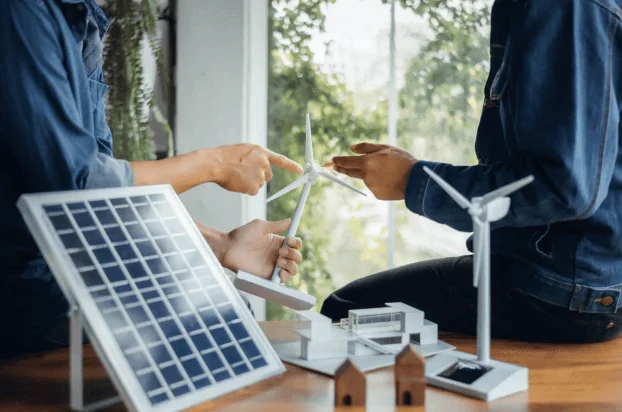What is the Future of Home Solar Panels
Renewable energy harnessed from solar power offers a sustainable and eco-friendly solution to meet the worlds.
What is the Future of Home Solar Panels

The shift toward renewable energy has transformed how we power our homes, and solar energy stands at the forefront of this revolution. As technology advances and global climate goals tighten, home solar panels are evolving beyond simple rooftop installations into integrated, smart energy systems. This blog explores the trends, challenges, and breakthroughs shaping the future of residential solar energy.
The Evolution of Home Solar Technology
Gone are the days of bulky, inefficient solar panels. Today’s solar solutions are sleek, high-efficiency systems that blend seamlessly with modern architecture. Innovations like bifacial panels (which capture sunlight on both sides), solar roof tiles, and transparent solar windows are redefining aesthetics and functionality. Meanwhile, advancements in battery storage—such as lithium-ion and solid-state batteries—enable homeowners to store excess energy and achieve near-complete energy independence.
Key trends driving this evolution include:
Hybrid Systems: Integrating solar with wind or geothermal energy for round-the-clock power.
Smart Energy Management: AI-powered systems that optimize energy consumption based on weather forecasts and household habits.
Community Solar Programs: Shared solar farms allowing urban residents or renters to invest in solar energy without installing panels.
Hybrid Systems: Integrating solar with wind or geothermal energy for round-the-clock power.


Sustainability Meets Policy: Navigating the Solar Landscape
As governments worldwide push for net-zero emissions, solar incentives and regulations are reshaping the market. For homeowners, this means:
- Tax Credits and Rebates: Programs like the U.S. Federal Solar Tax Credit (ITC) and EU subsidies that reduce upfront costs by 20–30%.
- Net Metering 2.0: Updated policies that fairly compensate homeowners for feeding excess energy back into the grid.
- Green Building Codes: Mandates for new constructions to include solar-ready infrastructure.
- Challenges to Overcome:
- Upfront Costs: While prices have dropped 70% since 2010, installation remains a barrier for low-income households.
- Grid Integration: Aging power grids struggle to handle decentralized solar energy, necessitating infrastructure upgrades.
- Supply Chain Bottlenecks: Critical materials like polysilicon face shortages, delaying projects.
Success Stories: Pioneering Solar Solutions
The Smart Solar Home
In Sweden, a family paired solar panels with a Tesla Powerwall and AI-driven energy management software. Their system cut grid dependence by 90% and reduced annual energy costs by $2,500.
Solar-Powered Communities
A cooperative in Kenya installed microgrids powered by solar panels, providing affordable electricity to 5,000 rural households. The project created local jobs and reduced diesel generator use by 80%.
Innovative Financing
Companies like Sunrun and M-KOPA offer “solar-as-a-service” leases, eliminating upfront costs. In Nigeria, GPIS Solar introduced pay-as-you-go solar kits, enabling low-income families to pay in installments via mobile money.
What’s Next? Predictions for 2030
- Solar Skin Customization: Panels that mimic roof materials (clay, slate) or display digital artwork.
- Self-Cleaning Panels: Nanotech coatings that repel dust and boost efficiency in arid regions.
- Blockchain Energy Trading: Peer-to-peer platforms where homeowners sell excess solar power directly to neighbors.
Conclusion
The future of home solar panels is bright, driven by smarter technology, supportive policies, and a global commitment to sustainability. For homeowners, this means greater affordability, energy resilience, and a tangible way to combat climate change. As the industry evolves, collaboration between governments, innovators, and communities will be key to unlocking solar energy’s full potential.
Ready to Join the Solar Revolution?
Explore incentives in your region, consult certified installers, and discover how solar can transform your home into a clean energy powerhouse.


1 Comment
Hi, this is a comment.
To get started with moderating, editing, and deleting comments, please visit the Comments screen in the dashboard.
Commenter avatars come from Gravatar.